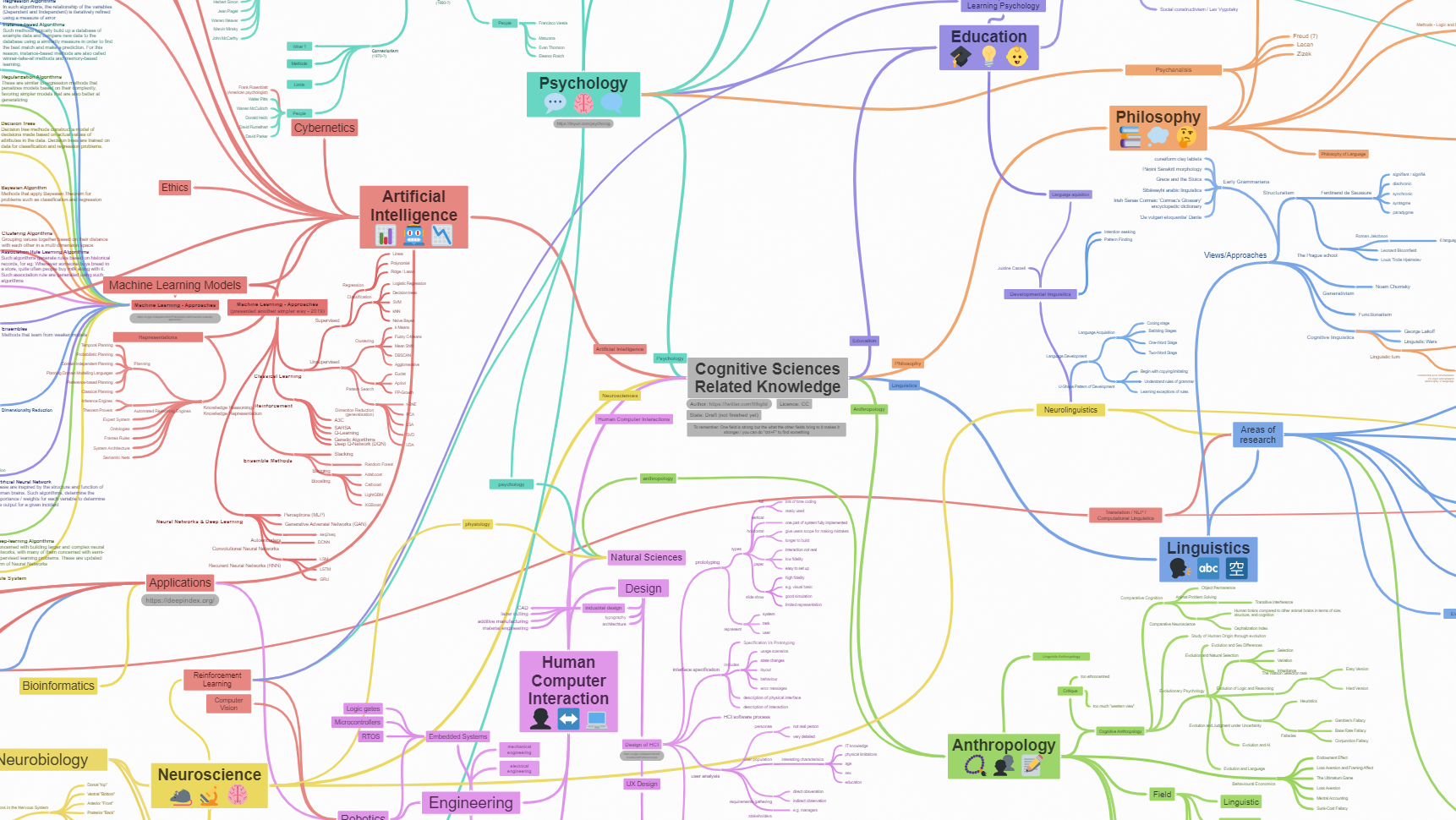Organise your thoughts with mindmaps
Posted on Tue 08 October 2019
What are cognitive sciences?
This is an interesting question to ask to yourself and ask people you meet who are working on topics related to cognitive science. Many chances that the definition is different depending on who you ask the question ! I wanted to explore what I knew about cognitive sciences, but also what people that I know, knew about cognitive sciences. This is why I created this quite huge map.
It is interesting to approach what are the cognitive sciences through the different spelling: Why do we speak for francophones of "cognitive scienceS" in the plural, whereas for english speakers, we speak rather of "cognitive science", in the singular ?
This is because it coexists several definitions of cognitive science. These are not necessarily incompatible, but they emphasize different aspects. This difference between these two ways of pointing them out puts forward a first important aspect cognitive science: interdisciplinarity. Historically, the cognitive sciences are a set of disciplines that have come together to elucidate the functioning of the human mind. First in 1942 within the Macy's conferences bringing together neurophysiologists, mathematicians and anthropologists, then in 1956 with linguists, computer scientists, mathematicians, economists, psychologists and neurobiologists. There was then exchange of methodologies, theoretical conceptions and problems passing from one science to another, questions of a science illuminating the problems of an other, reused experimental protocols. The boundaries between the disciplines melted. So much so that in english we speak of "cognitive science" as a unique science composed of others, while in french we have kept this mark of multidisciplinarity by speaking of "sciences cognitive ".
Cognitive sciences can be defined differently.
Cognitive science is defined as the science that studies the mental faculties (reasoning, decision-making, social cognition, memory but also sensory systems like: vision, smell, proprioception...).
This definition is the most common and classic but it limits the fields of effective research of the cognitive sciences excluding certain fields of computational neuroscience and neuroscience as well as computer science and anthropology.
Cognitive science can be defined as the science of information processing.
This definition is broader and more inclusive than the previous one. It thus more easily encompasses computer-related fields and some of the more fundamental aspects of cognitive science dealt with notably in philosophy (extended cognition, distributed cognition, cognitive artifacts..). However, some people consider this definition a bit too broad and over-inclusive, which does not allow the cognitive sciences to be properly differentiated from certain fields of physics, mathematics and computer science.
Cognitive science is defined as an interdisciplinary gathering of sciences with certain topics of common study brought together under the term cognition.
This definition is strongly influenced by the history of cognitive science, and its birth in conferences bringing together many different disciplines around a common interest in thought and reasoning.
